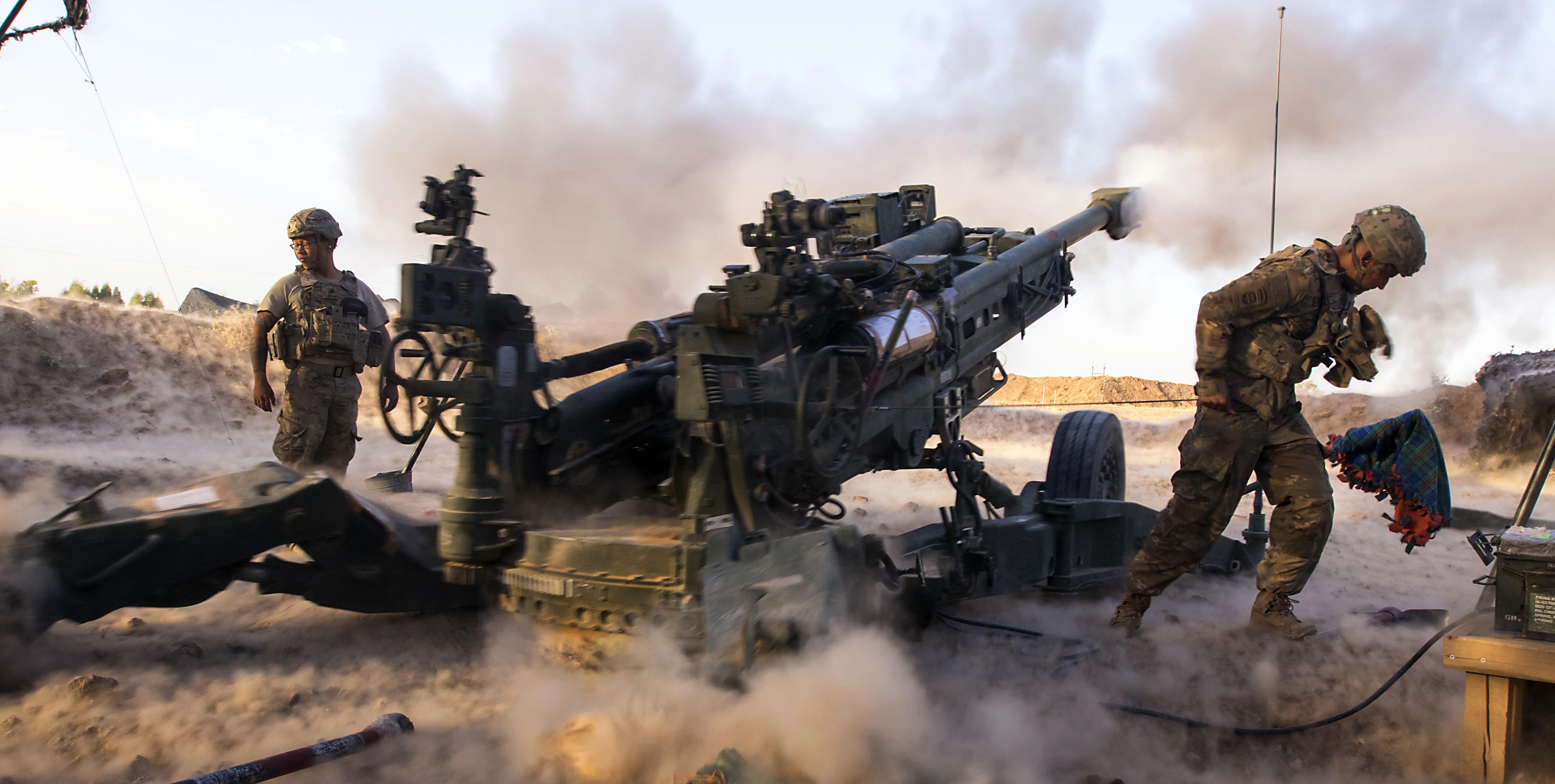Counter-IS Fight Offers Lessons for Future Conflicts
Counter-IS Fight Offers Lessons for Future Conflicts

The war waged by the U.S. against the Islamic State terror group during Operation Inherent Resolve was a decisive win for America, a renowned national security correspondent said.
“The book I wrote was about a war that we won by any reasonable standard,” Michael Gordon, author of Degrade and Destroy: The Inside Story of the War Against the Islamic State, From Barack Obama to Donald Trump said Aug. 9 during a webinar hosted by the Association of the U.S. Army as part of its Noon Report series.
“[During] Operation Inherent Resolve, ISIS’ caliphate was destroyed. The cost to the U.S., in terms of lives lost, was minimal, around the order of 20 [killed in action],” said Gordon, who is the national security correspondent for The Wall Street Journal and former chief military correspondent for The New York Times, where he worked from 1985 to 2017.
On Oct. 17, 2014, the Defense Department formally established Combined Joint Task Force-Operation Inherent Resolve to combat the ISIS threat in Iraq and Syria, according to DoD.
U.S. service members still maintain a presence in Iraq and Syria to support the mission, Gordon said. There are about 2,500 U.S. military personnel in Iraq and approximately 900 in Syria, according to a quarterly report on Operation Inherent Resolve from April.
“Just a few weeks ago, there was a drone attack that the U.S. carried out to kill an ISIS commander, so the United States achieved a victory with its partners, who paid a high cost, but this operation is not over,” Gordon said. “There are still American forces in Iraq and Syria … to keep a lid on a very … volatile situation.”
Gordon said he saw firsthand how the U.S. maintained a complicated balance with partner forces during the fight against the Islamic State group.
“When you have partner forces … you can’t dictate to the partner forces who are doing the bulk of the fighting and the dying, you can’t order them around,” he said. “They have their own politics, they have their own traditions, they have their own sense of strategy, and what I chronicle in the book is how the U.S. had to take that into account.”
The counter-ISIS campaign is not merely a part of history, Gordon said. It is essential to understanding future conflict.
“I think there's a bit of an attitude … that this is just history ... [and that] we've moved on to China, Russia, great-power competition, integrated deterrence and the like,” he said. “What happened in the counter-ISIS campaign has applicability towards the future, particularly in the ungoverned spaces in the world where the threats are sure to emerge again.”

